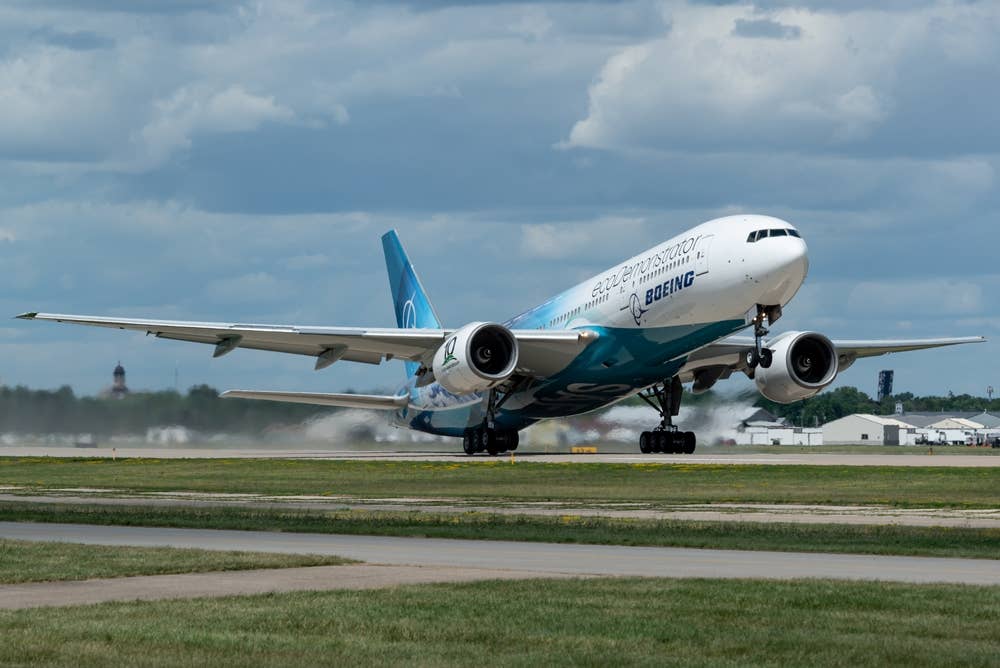Boeing Unveils Sustainability Tool to Boost Industry Net-Zero Goals
The aerospace company says the move is meant to support collaboration.

A Boeing 777-200 ecoDemonstrator fueled with SAF takes off at EAA AirVenture 2022. [Credit: Shutterstock]
The aviation industry’s sustainability movement is getting a boost from Boeing (NYSE: BA). The aerospace giant released its data-modeling tool, called the Cascade Climate Impact Model, for public use.
Cascade, available on the company’s new Sustainable Aerospace Together hub, is used to analyze the effectiveness of sustainability efforts aimed at reducing aviation’s carbon footprint. Boeing said it released the tool to help support the industry’s plans to reach net-zero carbon emissions.
Boeing said Cascade looks at the complete life cycle of alternative energy in aviation, including production, distribution, and use. The tool also quantifies the ability of different methods to reduce carbon emissions. Modeling can also be used to examine the effects of fleet renewal, operational efficiency, renewable energy sources, and future aircraft on decarbonization.
"We created Cascade to serve as an industry tool that creates a common framework among aviation, energy, finance, and policy," said Chris Raymond, Boeing’s chief sustainability officer. "By putting data first and sharing this model with the public, we are enabling collaboration, feedback, and alignment across industry, government, and others who work together to achieve a more sustainable aerospace future."
So far, the use of Cascade has led Boeing to a number of conclusions, including that sustainable aviation fuel, or SAF, will be the most effective factor in cutting carbon, because it can be used in current Part 25 transport category aircraft. Boeing said electric and hydrogen-powered aircraft are likely to contribute to carbon reduction in the future, but their effectiveness through 2050 will be limited by “long time frames” associated with development of new aircraft and infrastructure.
"Cascade helps airline operators, industry partners, and policymakers see when, where, and how different fuel sources affect their sustainability goals," said Neil Titchener, Cascade program leader. "Our industry has really hard questions ahead of us. We're going to have to make difficult choices. Cascade can be the conversation starter for how each decarbonization pathway can help us reach a more sustainable future."
Boeing also introduced the Cascade User Community, a group that will provide feedback regarding the tool. Founding members of the group include the International Air Transport Association, NASA, University of Cambridge's Aviation Impact Accelerator, and MIT’s Laboratory for Aviation and the Environment.
"The Cascade User Community will ensure the tool and data sources continue to get feedback and evolve for informed and effective discussions towards achieving net-zero emissions by 2050," Raymond said.

Subscribe to Our Newsletter
Get the latest FLYING stories delivered directly to your inbox






